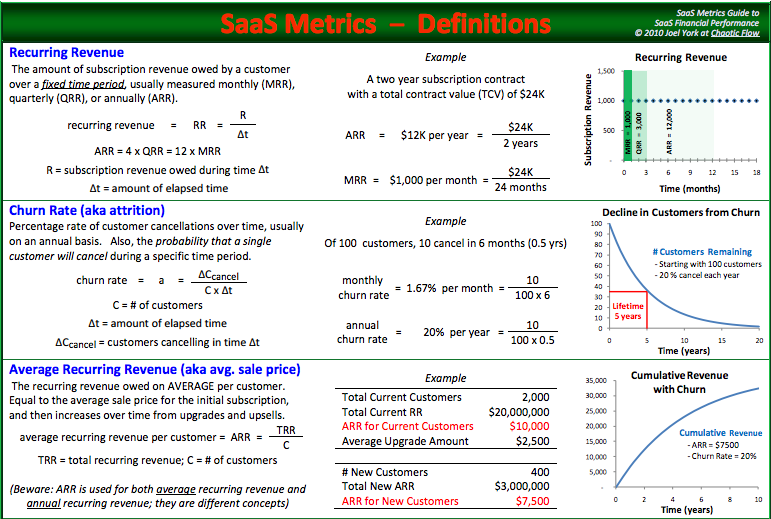Customer Lifetime Value (LTV) is an estimate of the average gross revenue that a customer will generate before they churn (cancel).
Why should I care about LTV? Primarily to apply a limit to your Customer Acquisition Cost (CAC) - if you're spending more on acquisition than you anticipate to earn from the customer in revenue, you're going to be in a bad place very soon (unless you have a bottomless pot of money to spend on acquisition).
Guide No. 1 by ChartMogul (Advanced SaaS)

Most SaaS-savvy entrepreneurs will tell you that Customer Lifetime Value (or LTV) is something that you absolutely should be estimating, tracking and improving as one of your key focus metrics. But a big problem in this area is that with all of the material available on the topic, there’s no clear answer to the question of how you should be estimating or using LTV in your business (in fact, the usual answer is that it’s very specific to the characteristics of each business).
At ChartMogul we’ve distilled and compiled a large collection of guidance and resources, to bring you the ultimate guide on everything you need to know on the topic. This 4-page PDF serves as a one-stop shop for LTV formulas, precautions and tips for everything LTV-related.
Guide No.2 by Hubspot ( Easy read for Ecommerce )

Every kid wonders “when will I ever use this?” while slogging through their algebra homework in high school. If you were one of those kids, today’s the day. Hallelujah (or the opposite of hallelujah), it’s time to put those math skills to work. You’re going to need them when calculating the lifetime value of your ecommerce customers.
Guide No. 3 by Joel York ( Chaotic Flow )

I’ve wrapped up the highlights of my SaaS metrics series into a tidy SaaS Metrics Guide to SaaS Financial Performance. Like the original SaaS metrics series, this reference guide presents simple rules-of-thumb and graphic visualizations that capture the dynamic relationships between core SaaS metrics and SaaS financial performance.
It is NOT a comprehensive overview of SaaS metrics, but a deep dive into the most critical SaaS metrics with the goal of fostering intuition and deeper understanding of SaaS financial performance, including charts, formulas, definitions, sample calculations, and hyperlinks back to the full SaaS Metrics Rules-of-Thumb posts. Feel free to pass it along. Cheers! JY.
What is Zoho app used for?
Is there a Zoho CRM app?
Is Zoho app free?
What big companies use Zoho?
Is Zoho a competitor of Salesforce?
Yes, Zoho CRM is considered as a competitor to Salesforce. Both Zoho CRM and Salesforce offer customer relationship management (CRM) solutions to businesses and organizations. However, they differ in their features, pricing, and target audience. Zoho CRM is known for its affordability and user-friendly interface, while Salesforce is known for its extensive range of features and scalability. Both systems have their pros and cons and it depends on the specific needs of your business to determine which one is better for you.
What are the disadvantages of Zoho CRM?
There are a few disadvantages of Zoho CRM that you should be aware of:
- Limited scalability compared to other CRM systems
- Lacks some advanced features offered by other CRM systems
- Not as widely used as other CRM systems, which can make it harder to find support or integrations
- Learning curve can be steep for new users
However, these disadvantages should be weighed against the benefits of Zoho CRM, such as its affordability, user-friendly interface, and strong suite of integrated business apps.
Is Zoho the same as Google?
No, Zoho and Google are not the same. Zoho is a suite of business and productivity apps that includes a CRM system, while Google is a multinational technology company that offers a wide range of products and services, including search engines, cloud computing, email, and more. Zoho and Google both offer apps and services that can help businesses and organizations, but they are not directly comparable as they cater to different needs and have different offerings.
